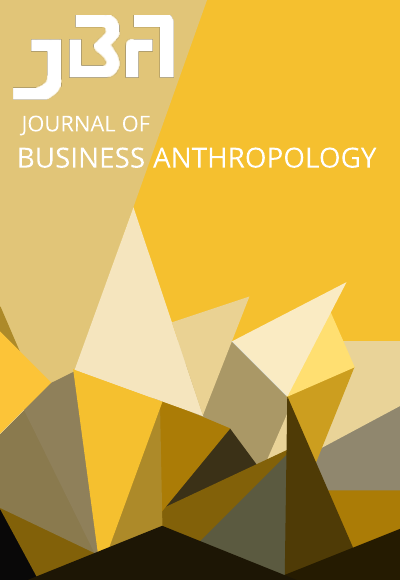Book Review: Digital Cultures, Lived Stories and Virtual Reality by Thomas Maschio, Anthropology and Business Series. London and New York: Routledge
DOI:
https://doi.org/10.22439/jba.v11i2.6781Abstract
The author of this book, Thomas Maschio, has lived two anthropological lives; an earlier one as an academic anthropologist and a later one as an anthropologist running a company (Maschio Consulting) that specializes in the use of ethnographic research methods to help solve business problems and provide new kinds of information for business decisions. This combined background shows, as this volume is full of insights that translate both to the rough and tumble world of business practices and the more abstract world of academic understandings. This is to say that it offers readers insights into common social practices, such as the use of personal devices (for instance, smart phones) or the production of contemporary journalism, that can be utilized by both business practitioners and university-based researchers to think more about the ever-increasing role that digital technology is playing in our lives. As such, I could see this volume being used as a standard textbook in different kinds of social science or business courses, as well as being of interest to those who are simply curious about the intersection between business and anthropology or who want to gain a greater understanding of contemporary digital practices.
Downloads
Published
Issue
Section
License
Authors who publish with this journal agree to the following terms:
- Authors retain copyright and grant the journal right of first publication with the work simultaneously licensed under a Creative Commons Attribution License that allows others to share the work with an acknowledgement of the work's authorship and initial publication in this journal.
- Authors are able to enter into separate, additional contractual arrangements for the non-exclusive distribution of the journal's published version of the work (e.g., post it to an institutional repository or publish it in a book), with an acknowledgement of its initial publication in this journal.
- Authors are permitted and encouraged to post their work online (e.g., in institutional repositories or on their website) prior to and during the submission process, as it can lead to productive exchanges, as well as earlier and greater citation of published work (See The Effect of Open Access).



